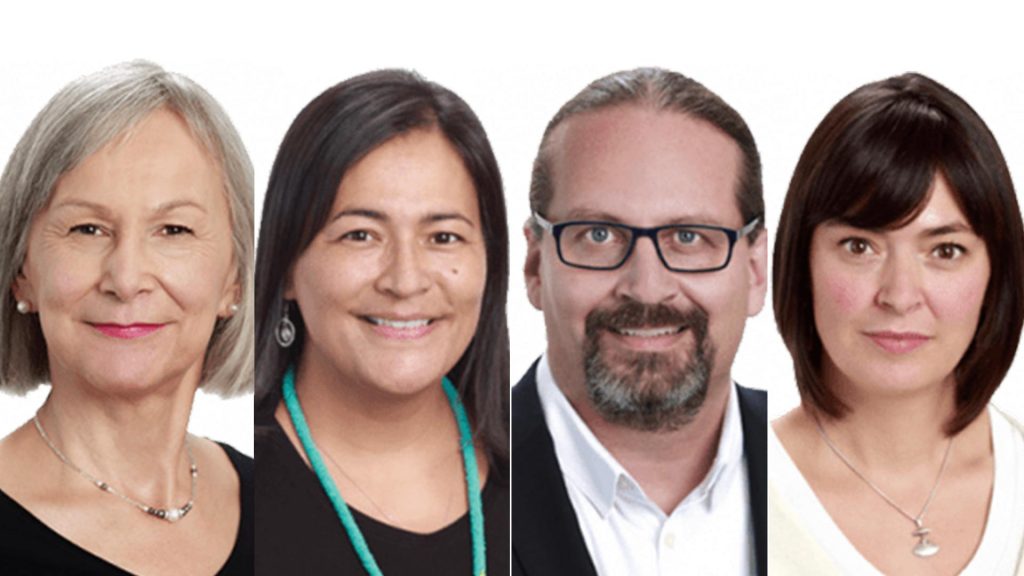
From left to right, Marion Buller, Michèle Audette, Brian Eyolfson and Qajaq Robinson issued a statement Wednesday.
The four former commissioners of the national inquiry that investigated violence against Indigenous women and girls added their voices to the chorus of unhappiness around the lack of movement on their 231 calls for justice.
Marion Buller, Michele Audette, Qajaq Robinson and Brian Eyolfson released a joint statement Wednesday, the one-year anniversary of their final report.
But instead of celebrating, they claim it’s been “one year of inaction” since they handed their 1,200-page report to Prime Minister Justin Trudeau.
And they add another call to their list – outside oversight.
“We call on Canada to move past fear and in partnership with Indigenous women, girls and 2S people, engage an international and impartial organization to mediate and oversee the implementation of the Calls for Justice,” their statement said.
“Should Canada fail to do so in a timely manner, we strongly encourage Indigenous women, girls and 2S people to invite international and impartial oversight of the implementation of the Calls for Justice.”
Read the letter from the inquiry commissioners
The commissioners don’t identify which organization should be called in when.
But they suggest it’s the next step because “there is no fair and just forum in Canada where Indigenous women, girls and 2S people can turn to ensure full participation in the implementation process for the Calls for Justice.”
The commissioners were appointed by the Trudeau government and began hearing from hundreds of witnesses in 2016 for nearly three years.
They criss-crossed the country and, despite internal issues that threatened to derail the inquiry on several occasions, concluded Canada’s very power structure was a foundation of genocide against Indigenous women and girls.
“To these families and individuals, we say “thank you”, for re-writing Canadian history by courageously telling your truths,” their statement said Wednesday. “…to learn the true history of Canada.”
So they want to see their work make change, they write.
“As the Final Report asserts, the Calls for Justice are not mere recommendations or a quaint list of best practices – they are legal imperatives rooted in Canada’s obligations under international and domestic human rights norms and laws.
“As the ongoing levels of violence attest, the fundamental human rights and Indigenous rights of Indigenous women, girls and 2S people continue to be violated daily in Canada, and Indigenous women, girls and 2S people continue to be subjected to colonial violence, physical violence, disappearances and murder.”
And the way action is taken is just as important as the action itself, they add in the statement.
“There has been little, if any, commitment demonstrated to ensure the work is led by Indigenous Peoples, with Indigenous women, girls and 2SLGBTQQIA peoples central in that process,” the statement notes.
“With the exception of Yukon, which has developed comprehensive plans and commenced implementation, there has been deafening silence and unacceptable inaction from most governments.”
The commissioners remind Canada that it has to change its thinking.
“Addressing genocide requires an honest and active process of decolonization of structures, institutions, legislation and policies,” they said.
“The swift implementation of the National Inquiry’s Calls for Justice is essential to address Canada’s responsibility for the commission of genocide and for violations of fundamental human rights.
“After all, lives depend on it.”









